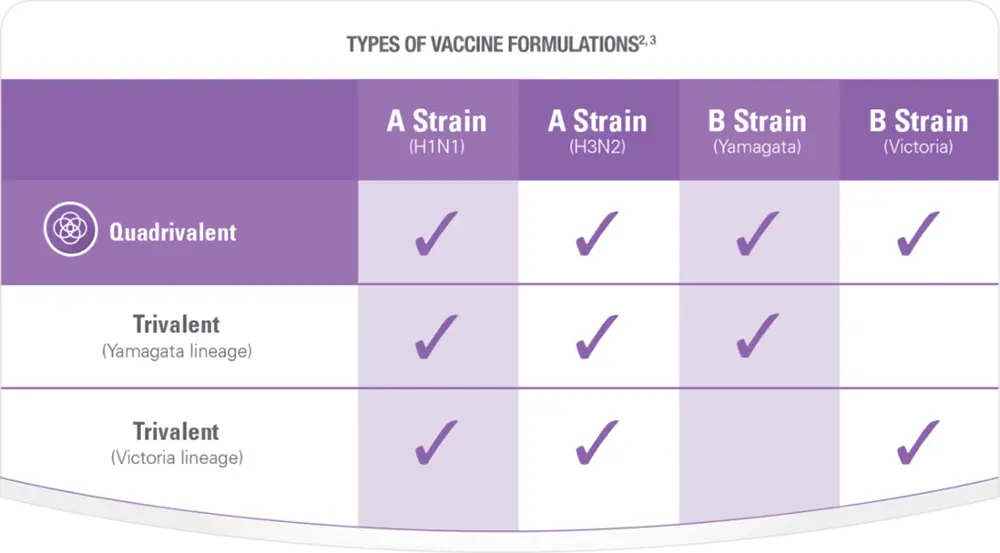Happy October! Today starts my week long informational series on “To Flu Shot or Just Say No?” Today I will start with what exactly is getting injected into (not ingredients—that will be a later post), but what the vaccine consists of.

The influenza virus was first isolated 80 years ago in 1933. The first vaccine was a monovalent (one) live-attenuated which was still used in Russia until recently.
There are 4 types of influenza viruses: A, B, C, D.
- Type A & B can cause seasonal epidemics every winter in the U.S.
- Type C can cause mild respiratory illness and is not thought to cause epidemics.
- Type D primarily affects cattle and not humans.
Type A is divided into subtypes based on 2 proteins on the surface of the virus called hemagglutinin (H) and neuraminidase (N). There are 18 different H subtypes and 11 different N subtypes. The current subtypes found in people are H1N1 and H3N2.
Type B is broken down into lineages and strains. Currently circulating B viruses belong to either B/Yamagata and B/Victoria.
This year if you chose to get a flu shot you are getting the quadrivalent vaccine against only those 2 influenza A (H1N1, H3N2) and the 2 Influenza B viruses.
But…what else is in this vaccine? Stay tuned until tomorrows post.
